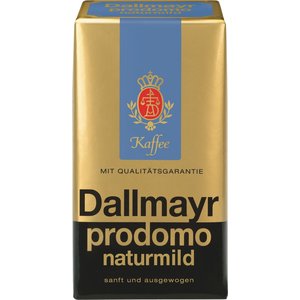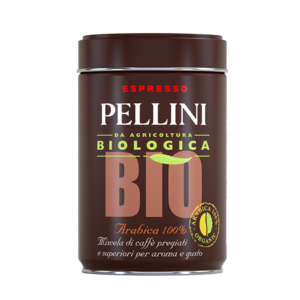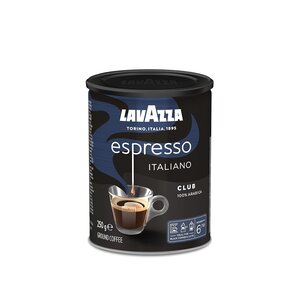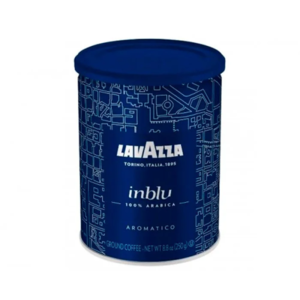Buy ground coffee.
The essentials of filter coffee and ground coffee, understanding their differences and uncovering answers to frequently asked questions.Use the filter (blue button) to make a targeted selection. Do you have any questions? We are happy to help.
Filter coffee and ground coffee: Your questions answered
Filter coffee and ground coffee are terms often used interchangeably in the coffee world, but they describe different aspects of coffee and its preparation. Here we address frequently asked questions about both, clarify and highlight the differences.
Explaining filter coffee and ground coffee
Before we delve deeper into frequently asked questions, it is crucial to clarify the distinction between filter coffee and ground coffee.
Filter coffee refers to a brewing method in which hot water is poured over coffee grounds in a filter. The water soaks through the coffee and absorbs the flavors and oils before dripping into a carafe or mug. This method is known for producing a clean, refined cup of coffee, highlighting subtle flavor notes.
Ground coffee is coffee beans ground into a fine or coarse powder, depending on the brewing method to be used. Ground coffee can be used in a variety of brewing methods, including filter coffee, espresso and French Press. The grind has a major impact on the extraction process and the final taste of the coffee.
What are the benefits of using filter coffee?
Filter coffee methods, such as drip or pour-over, often produce a cleaner, lighter cup of coffee. The filter traps oils and fine particles, resulting in a smooth texture and clear flavor. This method is ideal for tasting the subtle differences between different coffee beans.
Can any ground coffee be used for filter coffee?
Although technically any ground coffee can be used in a filter coffee maker, the grind must match the brewing method for optimal flavor extraction. A medium grind is usually recommended for filter coffee. If the grind is too fine, the coffee may become over-extracted and bitter; if the grind is too coarse, the coffee may become weak and under-extracted.
How long does ground coffee stay fresh?
Ground coffee begins to lose its freshness and flavor soon after grinding, due to exposure to air, moisture and light. It's best to use it within a week or two if you store it properly in an airtight container. For best flavor, grind coffee beans just before brewing.
Is filter coffee stronger than espresso?
In terms of caffeine concentration, espresso is stronger than filter coffee. However, because espresso is served in smaller quantities, a full cup of filter coffee may contain more caffeine in total. The strength in flavor also differs, with espresso being more intense and concentrated, while filter coffee is lighter and more nuanced.
Can I reuse ground coffee?
It is not recommended to reuse ground coffee because most of the aromas and oils are extracted during the first brew. A second brew with the same ground coffee would result in a very weak and unsatisfactory cup of coffee.
How does water temperature affect filter coffee brewing?
Water temperature can significantly affect the extraction process and the final taste of the coffee. Ideally, the water should be between 90°C and 96°C (195°F and 205°F). If the water is too hot, the coffee tastes burnt or over-extracted; if the water is too cool, the extraction is incomplete, resulting in a flat or sour taste.
What benefit does this give me?
Whether you prefer the crisp, bright flavors of filter coffee or enjoy experimenting with different grind sizes for different brewing methods, understanding these basics will improve your coffee experience. Both filter coffee and ground coffee offer opportunities to explore the rich and diverse world of coffee and invite enthusiasts to refine their taste and brewing skills. Remember, the best cup of coffee is the cup that suits your personal preference, is brewed with care and is enjoyed in good company.



 Coffee beans
Coffee beans
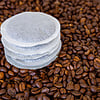 Coffee pods
Coffee pods
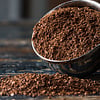 Ground coffee
Ground coffee
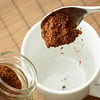 Instant powders
Instant powders
 Coffee cups
Coffee cups
 Offers
Offers
 Accessories
Accessories
 Tea
Tea
 Coffeeblog
Coffeeblog
 Blog
Blog



